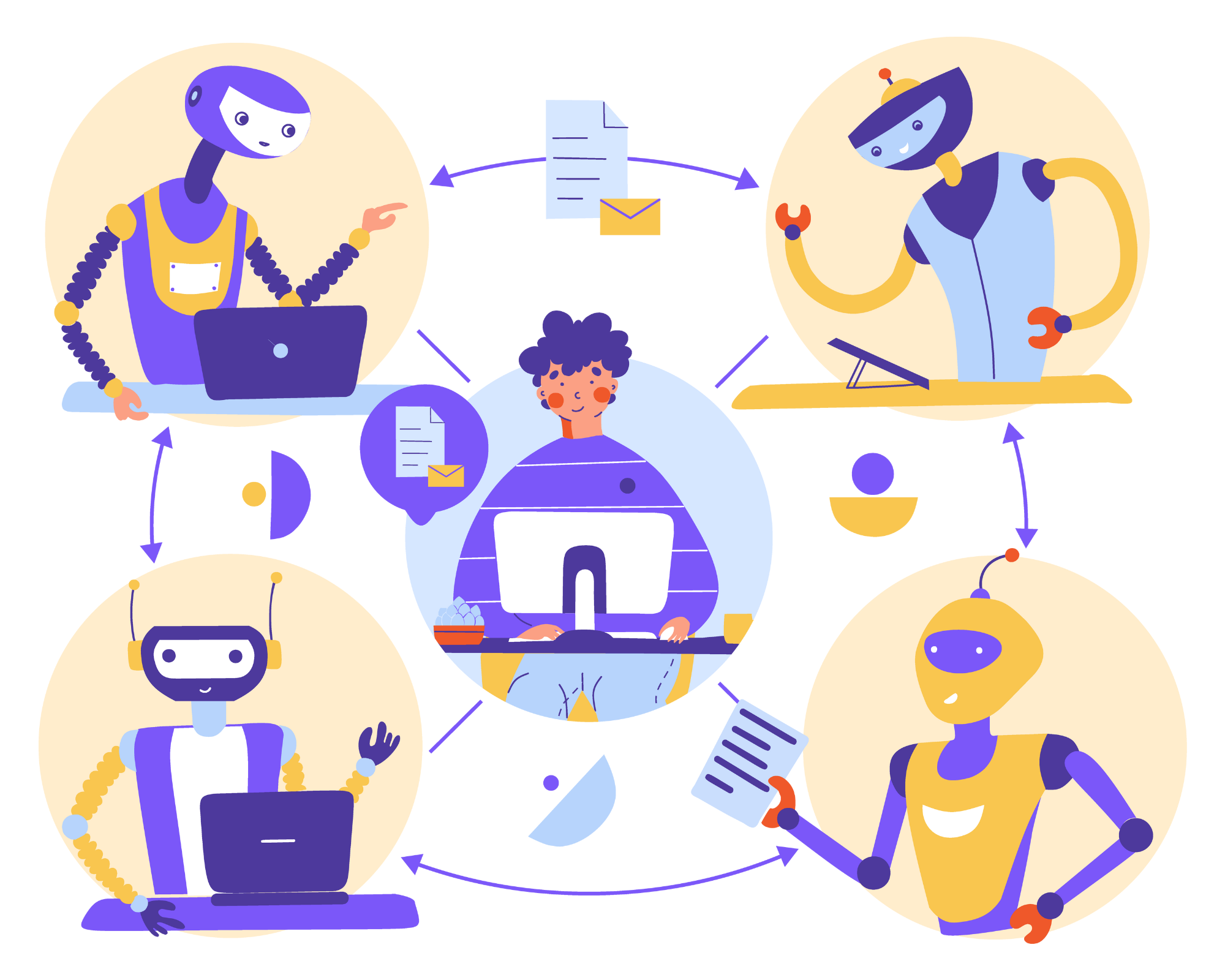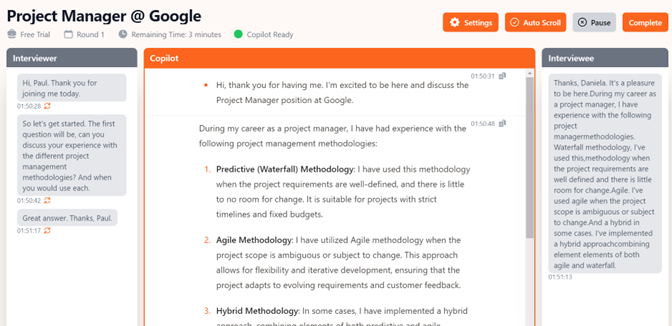
New AI technology is rapidly changing the landscape for job seekers. Anyone looking for a job or hiring someone needs to be aware of how this tech is helping candidates, both fairly and unfairly.
I’ve identified 4 stages of job seeker AI, and the last one is blatant cheating.
Stage 1 – ChatGPT
You can use ChatGPT (and its competitors) to write your resume, a job description, interview questions, the answers to those questions, thank you emails, and so on.
As many of us have discovered, it often produces fairly average content, but it can provide great scaffolding to effectively create good documents.
Stage 2 – Candidate Application Management
There are a number of sites that claim to take the pain away from the grind of applying for roles.
Job Scan claims it can ‘beat the bots’ by reviewing the job ad and reverse engineering your resume to pass the AI screening stage. Huntr is an app which tracks your applications and interviews, as well as auto-filling applications. CareerFlow goes a step further finding jobs that might suit and conducting mock interviews, whilst Teal provides a neat CRM style application importing your LinkedIn connections to help your job search.
This is all interesting enough, but hardly ground breaking.
Stage 3 – Job Application Automation
One of our Balance team recently decided to post an advertisement one Saturday night (no, he doesn’t get out much) and was shocked that in the first hour, he received 30 applications. Surely there weren’t 30 Project Managers job hunting at that hour.
A little research uncovered a smorgasbord of AI tools that completely automate the job application process – 24/7!!
Loop CV advertises that you can upload your resume and it will mass apply to anything suitable ‘Every Single Day’. Lazy Apply claims it ‘never gets blocked by platforms’, it’s $US129 lifetime access plan has a limit of 750 applications per day!!! That’s a lot of applications!!!
An interviewer can no longer assume that the candidate is actually cognisant that they applied for their role. It does make the question, “So why do you want to work here?”, a little old school.

Conversely, all candidates should be aware, that the employer you are speaking to, may not have actually chosen to interview you. The use of online chatbots to arrange interviews and ask screening questions is increasingly common, with companies such as Smart Recruiters offering largely human free selection. Whilst The Guardian last year highlighted candidates being phone interviewed by bots, not humans.
So if the candidate has automated their job application process and the employer has automated their recruitment process, the first time any human becomes aware of the engagement is when the interview commences.
I’m predicting these tools will save some time and effort, and will result in some great and catastrophic outcomes.
Stage 4 – God Mode/Cheating
I have come across one product which really could be a game changer. Final Round AI has a product called Copilot, or as they claim “God Mode for interviews”.

For the uninitiated, God Mode is a computer gaming term for a cheat code in video games that makes a player invincible.
Copilot is a Chrome extension that runs on the candidate’s device during an interview on Teams, Zoom, Google Meet, and Webex. In one panel it transcribes the interviewer’s spoken questions in real time, in the next panel it gives the applicant the answers to those questions in real time. The candidates resume, cover letter, job title, and details of the potential employer are all uploaded to the application before the interview to give the algorithm added context.
It claims it’s suitable for interviews for roles in 50 domains including technology, data science, and has a special Coding Copilot which offers ‘curated support’ for coding assessments.
So the candidate who impressed you with insightful and in-depth answers may just have been reading from an AI tele-prompter.
Obviously, the team at Balance had to trial it. We ran an MS-Teams interview for an imaginary role of PM at Google. The attached screenshot was from our session with the left panel showing a transcription of the interviewer’s questions, the central panel is Copilot’s suggested answer, and the right panel a transcription of the interviewee’s verbal response.
The results? It delivered sensible answers, but they were a touch generic and delivered them about 5 seconds after the question finished. Also, the sound quality of the interviewer was poor. The product seems pretty new so I’m sure this will improve over time.

Further, I had a Developer friend run a mock interview on Copilot for a Ruby on Rails job. He asked a number of technical Ruby questions and felt the answers were quick, accurate, and easy to read. He said it was very usable in a real-life situation.
Coding Copilot, which is still in the testing phase, claims to be able to solve coding challenges in real time. Here is their YouTube tutorial: https://www.youtube.com/watch?v=Cye7aBGuCeE. I would love some of the coders out there to give me some feedback on its effectiveness.
In Summary
For the job seeker, AI can take much of the grind out of your job search but assume that everything produced is generic at best and needs your human touch to refine it.
For those hiring staff, you should happily consider candidates who have used AI to make their job seeking more efficient, whilst respecting ethical boundaries. These candidates should be able to leverage AI in their next role and this is a great trait in future employees for any business.
As for Final Round Copilot, despite the fact that it’s a bit clunky at present, I’m sure the product and its competitors will mature quickly over the coming months and will result in some extremely poor hiring decisions in the future. To avoid this, I recommend you ensure a candidate visits your office for one face-to-face interview during the recruitment process.
This is a rapidly changing space, I’m sure there are more developments ahead….. *gulp*